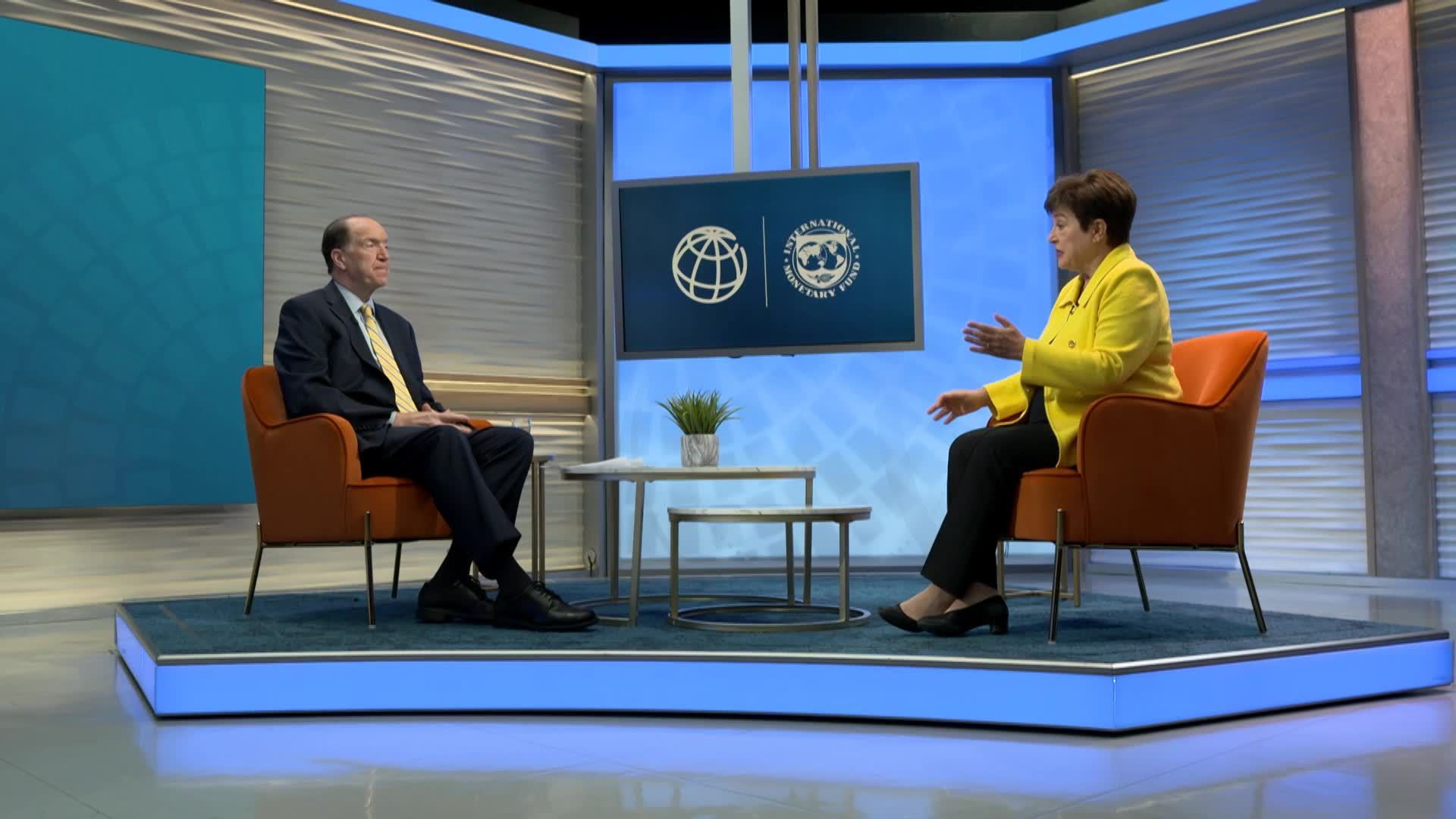The IMF annual meeting is taking place as the world grapples with the sharpest slowdown in economic activity in 80 years, rising inflation, a food and energy crisis, the war in Ukraine, the continuing impact of COVID-19 and climate change.
These compounding crises are threatening livelihoods and taking a toll on the most vulnerable.
IMF Managing Director Kristalina Georgieva and World Bank Group President David Malpass discussed the profound urgency for policy makers, international organizations and the private sector to take decisive action, and how the IMF and World Bank Group are working to support countries in addressing the problems.
David Malpass, World Bank Group President, warned of the growing risk of a global recession.
“There's the risk and the real danger of a world recession next year, the advanced economies are slowing in Europe. And so we'll see where it where it goes into next year. But the the currency depreciation means that the debt levels for the developing countries are getting more and more burdensome. The rise in interest rates puts added weight on it. And inflation is still a major problem for everyone, but especially for the poor.”
Kristalina Georgieva, IMF Managing Director, emphasized the extent of the projected loss.
“We have calculated that about one-third equivalent of the world economy would have at least two consecutive quarters of negative growth this year, next year, and that the total amount that would be wiped out by the slowdown of the world economy is going to be between now and 2026, four trillion dollars. This is the size of Germany, GDP gone.”
She warned of a slowdown in China’s economy having a negative impact on economic forecasts.
“We are seeing slow down in all three key economies of the world. Eurozone, because primarily of gas prices shooting up China, because of COVID disruptions and the volatility of the housing sector, we see a very significant problem in China dragging down growth. And in the United States, still very strong labor market, but also losing a bit of momentum because interest rates are starting to bite,” said the head of the Fund.
Georgieva described climate change as the overarching priority this week as economic policy makers from around the world come to Washington, DC for the Annual Meetings of the IMF and World Bank.
“I want to be very clear on this week. It is bad to have inflation, but we will survive as humanity. And it's very bad to have recessions. It would affect people horribly, especially poor people. But we can survive it as humanity. We cannot survive on unabated climate crisis. So mobilizing today. For a more resilient tomorrow is exactly what we should do,” said Georgieva.
In response to the issue of climate change, Malpass pointed to a trust fund the World Bank is launching to try and address the problem.
“The World Bank has a lot of the key trust funds that are making available global resources into the climate space. We're launching right now one called Scale, which is sustainable climate action. That will be a major conduit for the world putting money into the climate space, because one of the big challenges has been to have projects that are really impactful,” Georgieva said.

